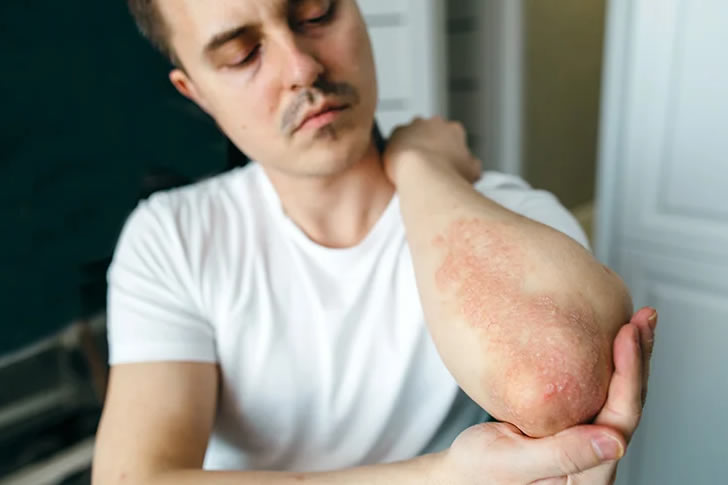Psoriasis can be managed with the right treatment plan. Here are tips and advice for living with and treating psoriasis plaques.

Psoriasis is a chronic autoimmune condition characterized by the rapid growth of skin cells, leading to the formation of red, scaly patches or plaques. Though it can appear anywhere on the body, commonly affected areas include the elbows, knees, and scalp.
Psoriasis is not just a skin condition but also an autoimmune disorder where the body's immune system mistakenly attacks healthy skin cells. Genetics and environmental factors often trigger it. Stress, skin injuries, and certain medications can exacerbate the condition.
Plaque psoriasis, the very common form of psoriasis, presents as raised, inflamed, red lesions covered by silvery white scales. Understanding its symptoms can help in early management and treatment.
Effective treatment for psoriasis plaques includes a combination of topical treatments, light therapy, and systemic medications. Here are the main options you can consider:
Corticosteroids are anti-inflammatory medications commonly used to reduce the swelling and redness of psoriasis plaques. They come in various strengths and formulations (creams, ointments, lotions).
These treatments slow down the growth of skin cells. Calcipotriene and calcitriol are commonly prescribed.
Coal tar has anti-inflammatory properties and is available in different forms, such as shampoos, creams, and oils.
While not specifically a treatment, regular moisturizing can ease the dryness and itching associated with psoriasis plaques.
Exposing skin to natural or artificial light can help reduce psoriasis plaques. Options include UVB phototherapy, PUVA treatment, and laser treatments.
This involves exposing the skin to ultraviolet B light under medical supervision.
Combines the photosensitizing drug psoralen with UVA light.
Oral or injected medications affect the whole body and are used for moderate to severe psoriasis.
A common systemic medication, methotrexate slows down cell turnover.
Biologics target specific parts of the immune system. These include medications like adalimumab and etanercept.
Eating a balanced diet rich in anti-inflammatory foods can help manage psoriasis symptoms. Focus on fruits, vegetables, whole grains, and omega-3 fatty acids.
Stress is a known trigger for psoriasis flare-ups. Techniques such as yoga, meditation, and deep-breathing exercises can help manage stress levels.
Regular physical activity can help reduce inflammation and enhance overall health.
Both smoking and alcohol consumption can worsen psoriasis. Quitting smoking and moderating alcohol intake can improve treatment outcomes.
Living with psoriasis, particularly plaque psoriasis, can be challenging, but effective treatment options are available. Consultation with a healthcare provider is crucial to tailor the treatment plan accordingly. Alongside professional treatments, adopting healthy lifestyle habits can significantly enhance the quality of life for those affected by this condition.
Explore the Tranquil Bliss of Idyllic Rural Retreats

Ultimate Countdown: The 20 Very Legendary Gaming Consoles Ever!

Understanding Halpin and its Influence

Affordable Full Mouth Dental Implants Near You

Discovering Springdale Estates

Illinois Dentatrust: Comprehensive Overview

Embark on Effortless Adventures: Unveiling the Top in Adventures Made Easy Outdoor Equipment

Unveiling Ossur Valves: Innovation in Prosthetics

Unlock the Full Potential of Your RAM 1500: Master the Art of Efficient Towing!
